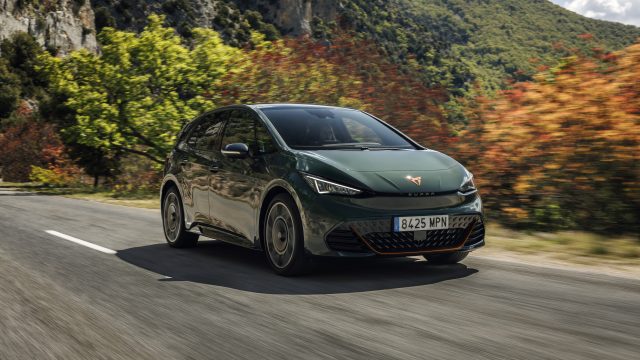Volkswagen has parked agency sales for all its brands as Cupra – the last remaining brand operating under the scheme – switches back to a wholesale model.
Agency sales, which see a car manufacturer sell directly to consumers via their website with dealers paid a fee for handing them over, were seen as all the rage following Covid, but have been met with a mixed reaction from the industry.
VW Group has now rowed back on its agency sales plans for all brands but insisted it is still the firm’s ‘long term strategic sales model’ plan.
In a bulletin to his dealer network yesterday, Damien O’Sullivan, managing director of Volkswagen Group UK, told dealers that it was changing its plans to ‘reduce the complexity’ of having different sales models working in tandem.
He said the industry is in a ‘process of transformation’ and that VW needed to ‘cater for the needs of customers’.
VW had been selling electric vehicles under the agency sales scheme while at the same time retailing its ICE vehicles in the traditional wholesale manner.
The note from O’Sullivan (pictured below), leaked to Car Dealer, said: ‘You will be aware that other brands, as well as Audi, recently took the decision, for the short to medium term, to move back to wholesale, thereby reducing the complexity of the “dual distribution” model which currently exists with ICE and BEV products being sold under different frameworks.
‘Cupra has now also taken the decision to migrate retail sales of its BEV products to a wholesale model, with the overall aim of ensuring the most efficient sales process for our networks and customers.’

In November, Car Dealer revealed that VW had canned its agency plans for its other brands, but at the time it said it would continue to leave Cupra operating in this fashion.
A spokesperson for Cupra told Car Dealer: ‘Cupra has decided to migrate retail sales of its BEV products (Born and Tavascan) from the agency to the wholesale model in Europe, including for the UK.
‘This is to reduce complexity for Volkswagen Group multi brand dealers operating under a dual distribution model for ICE and BEV products.’
Cupra said some other markets will continue to operate under agency where a ‘full range’ has been established and plans to ‘transition to the indirect sales model in Europe’ in 2026.
Agency sales grew in popularity following the pandemic as car makers believed they could keep more of the profits of a car sale by facilitating the deal themselves and paying their dealers a handling fee.
However, on the whole, agency sales have not worked. Disliked by dealers, the schemes left manufacturers with the difficult job of selling cars themselves. There were complications with which party dealt with the part exchange as well as other issues.
Stellantis had planned agency sales for its brands but has since kicked the can down the road with boss Eurig Druce telling Car Dealer in February that it was ‘not a priority’ any more.
BMW and Jaguar Land Rover have all paused plans to move to agency sales. Meanwhile, Mercedes and Volvo have continued with their agency sales models. Last year, Mercedes saw sales rise by 17% to 102,757 cars and Volvo rose 32% to 66,408 sales.


































